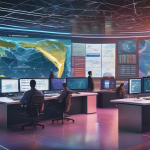Can AI Solve the World’s Biggest Problems?
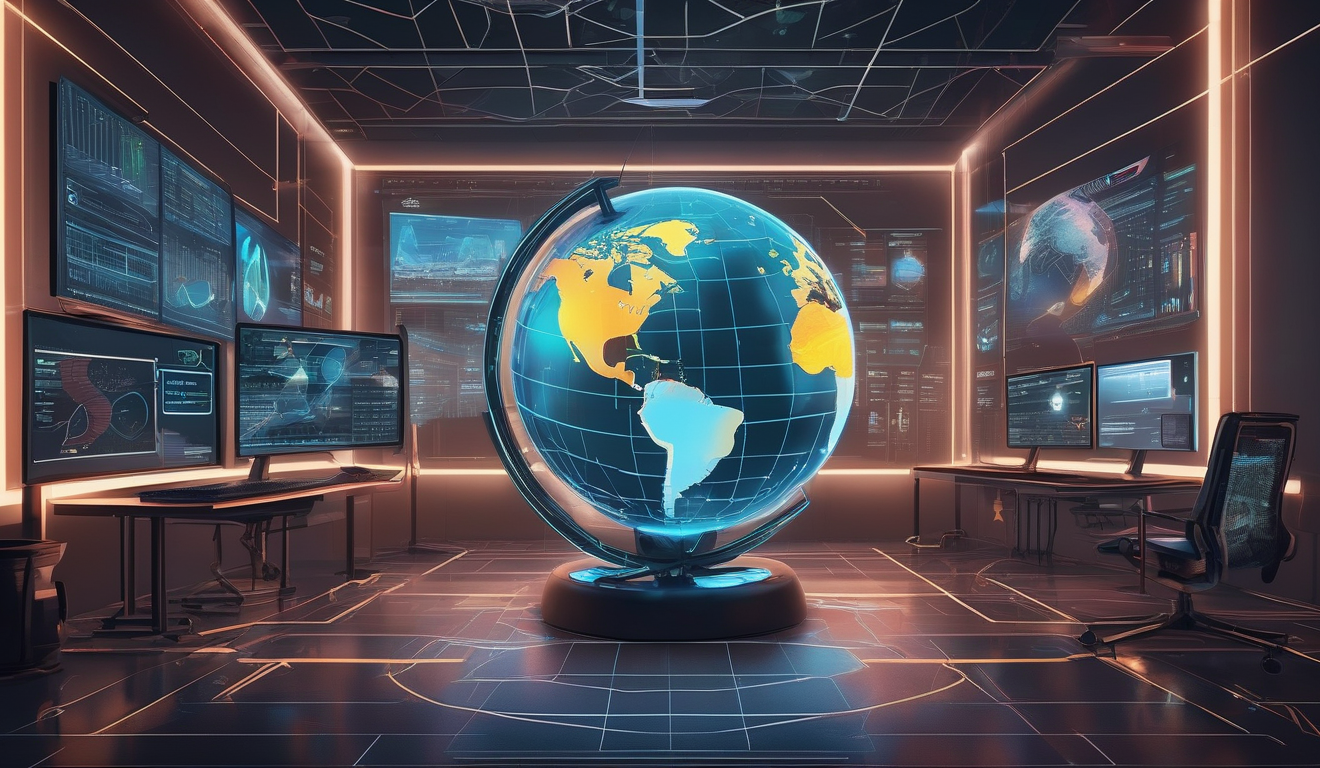
In today’s rapidly evolving world, the question of whether artificial intelligence (AI) can tackle some of our most pressing issues is more relevant than ever. From climate change to healthcare and poverty, the challenges we face are daunting. But what if AI could be the key to unlocking innovative solutions? Imagine a world where intelligent algorithms analyze vast amounts of data to predict environmental changes, or where AI-driven systems personalize medical treatments for individuals. The potential seems limitless, yet we must also consider the limitations and ethical dilemmas that come with this powerful technology.
AI is not just a futuristic concept; it’s already making waves in various sectors. For instance, in the realm of climate change, AI can optimize energy use, predict weather patterns, and even help in reforestation efforts. In healthcare, AI algorithms are revolutionizing diagnostics, leading to faster and more accurate patient care. However, as we explore these possibilities, we must ask ourselves: are we ready to embrace AI as a partner in solving global challenges? Or are we risking reliance on a technology that we don’t fully understand?
As we dive deeper into this topic, it’s crucial to highlight some of the key areas where AI can make a significant impact:
- Climate Change Mitigation: AI technologies are being used to enhance climate modeling and improve resource management.
- Healthcare Transformation: From diagnostics to treatment plans, AI is personalizing patient care like never before.
- Poverty Alleviation: Innovative AI initiatives are addressing economic opportunities and education access.
Yet, while the opportunities are exciting, we must also recognize that AI is not a magic bullet. There are inherent challenges and ethical considerations to navigate, such as bias in algorithms, accountability for decisions made by AI, and security risks associated with data handling. The future of AI in problem-solving will depend on our ability to address these issues while harnessing its potential to create a better world.
In conclusion, the journey towards leveraging AI effectively in tackling global challenges is just beginning. With ongoing advancements in technology and a commitment to ethical practices, we could see a future where AI not only assists but also empowers humanity in overcoming its greatest hurdles.
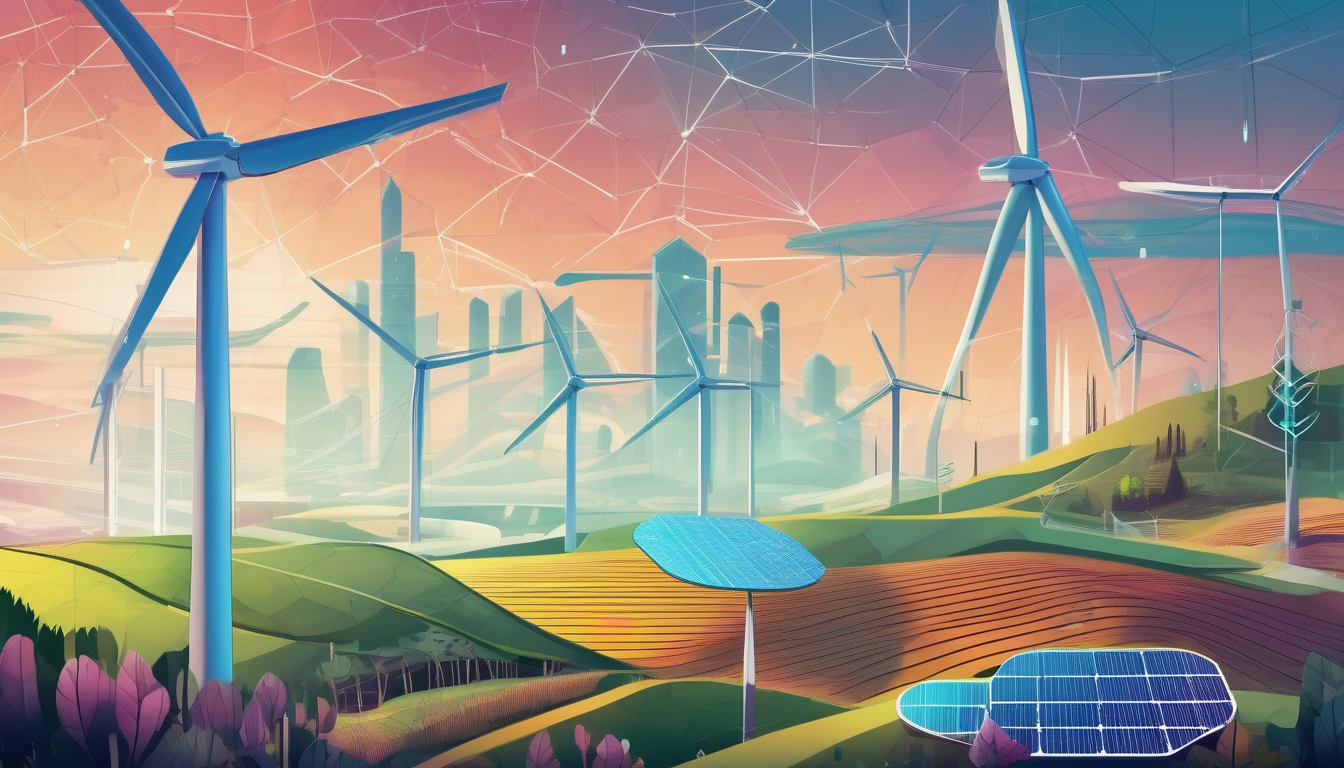
The Role of AI in Climate Change Mitigation
As the planet grapples with the daunting challenges of climate change, artificial intelligence (AI) emerges as a powerful ally in the fight for environmental sustainability. Imagine a world where AI can analyze vast amounts of data to optimize energy consumption, predict weather patterns, and manage resources more effectively. This isn’t just a dream; it’s becoming a reality. AI technologies are revolutionizing our approach to climate change mitigation, and the potential applications are as diverse as they are impactful.
One of the most significant ways AI contributes is through energy optimization. For instance, AI algorithms can analyze energy usage in real-time, allowing businesses and households to reduce waste and lower their carbon footprints. By predicting peak energy demand, AI can help in deploying renewable energy sources more efficiently. This means cleaner energy for everyone. But that’s just the tip of the iceberg.
Moreover, AI is enhancing climate modeling. Traditional climate models often struggle with the complexity of predicting long-term climate impacts. However, AI can process enormous datasets from various sources, improving the accuracy of these models. This leads to better-informed policy decisions that can drive effective climate action. For example, AI can simulate different scenarios of greenhouse gas emissions, helping policymakers understand potential outcomes and plan accordingly.
Resource management is another area where AI shines. With the help of machine learning algorithms, we can optimize agricultural practices, ensuring that water and nutrients are used efficiently. This not only boosts crop yields but also minimizes environmental impact. For instance, AI-driven precision agriculture can help farmers determine the best times to plant and harvest, leading to sustainable practices that protect our planet.
In summary, while AI is not a silver bullet, it certainly holds promise in combating climate change. By leveraging its capabilities in energy optimization, climate modeling, and resource management, we can take significant strides towards a more sustainable future. As we continue to explore these technologies, the collaboration between AI and human ingenuity will be crucial in creating effective solutions for our planet’s most pressing challenges.

AI in Healthcare: Revolutionizing Patient Care
Artificial Intelligence (AI) is not just a buzzword; it’s a game-changer in the healthcare sector. Imagine walking into a clinic where your medical history is instantly analyzed by an intelligent system, providing doctors with invaluable insights in mere seconds. AI technologies are transforming patient care by enhancing diagnostics, personalizing treatment plans, and streamlining administrative tasks. This revolution is not just about efficiency; it’s about saving lives.
One of the most remarkable applications of AI in healthcare is in diagnostics. Traditional diagnostic methods can be time-consuming and sometimes inaccurate. However, AI algorithms can analyze medical images, lab results, and patient data with incredible precision. For instance, AI systems can detect anomalies in X-rays or MRIs that even seasoned radiologists might miss. This ability to catch diseases early can be the difference between life and death.
Moreover, AI is paving the way for personalized medicine. Each patient is unique, and their treatment should be too. AI can analyze genetic information and lifestyle factors to tailor treatment plans that are specifically designed for individual needs. This means that instead of a one-size-fits-all approach, patients receive therapies that are more effective and have fewer side effects. It’s like having a custom-made suit instead of an off-the-rack outfit!
In addition to diagnostics and personalized care, AI is also revolutionizing the administrative side of healthcare. Healthcare providers often face overwhelming paperwork and scheduling challenges. AI-powered systems can automate these tasks, allowing healthcare professionals to focus more on patient care rather than administrative burdens. This not only improves efficiency but also enhances the overall patient experience.
However, while the benefits of AI in healthcare are substantial, it’s crucial to address the ethical implications that come with it. Issues such as data privacy, algorithmic bias, and the need for human oversight are vital discussions that must accompany the integration of AI into healthcare systems. As we embrace these technologies, we must ensure they are used responsibly and equitably.
In summary, AI is not just revolutionizing patient care; it is reshaping the entire healthcare landscape. With its ability to enhance diagnostics, personalize treatment, and streamline operations, AI holds the potential to improve patient outcomes significantly. As we continue to explore the capabilities of AI, the future of healthcare looks brighter than ever.

Combating Poverty with AI Solutions
Poverty is a complex beast, and tackling it requires more than just goodwill; it demands innovative solutions. Enter artificial intelligence—a powerful ally in the fight against poverty. Imagine a world where AI can analyze vast amounts of data to identify the most pressing needs of communities, ensuring that resources are allocated efficiently. This isn’t just a dream; it’s happening now!
AI technologies can enhance economic opportunities by providing insights that empower small businesses and entrepreneurs. For instance, machine learning algorithms can analyze market trends and consumer behavior, helping local businesses optimize their strategies. This means more jobs and better income for families. But that’s not all. AI can also improve access to education, which is crucial for breaking the cycle of poverty. With personalized learning experiences powered by AI, students can receive tailored education that meets their unique needs, making learning more effective.
Furthermore, AI is revolutionizing the way resources are distributed. By using predictive analytics, organizations can forecast the needs of communities and allocate food, medical supplies, and financial aid more effectively. For example, AI can help in identifying areas that are most vulnerable during economic downturns, ensuring that help arrives where it’s needed most. This proactive approach can make a significant difference in alleviating poverty.
However, it’s essential to recognize that while AI offers promising solutions, it is not a silver bullet. The implementation of AI must be done thoughtfully and ethically. There are risks of bias in AI algorithms, which can inadvertently perpetuate inequalities if not properly managed. Therefore, collaboration between technologists, policymakers, and community leaders is vital to ensure that AI solutions are inclusive and equitable.
In summary, AI has the potential to be a game-changer in the fight against poverty. By enhancing economic opportunities, improving education access, and optimizing resource distribution, we can create a more equitable world. But the journey doesn’t end here; it requires continuous effort, vigilance, and a commitment to ethical practices. Together, with AI as a partner, we can take significant strides toward a future where poverty is a thing of the past.
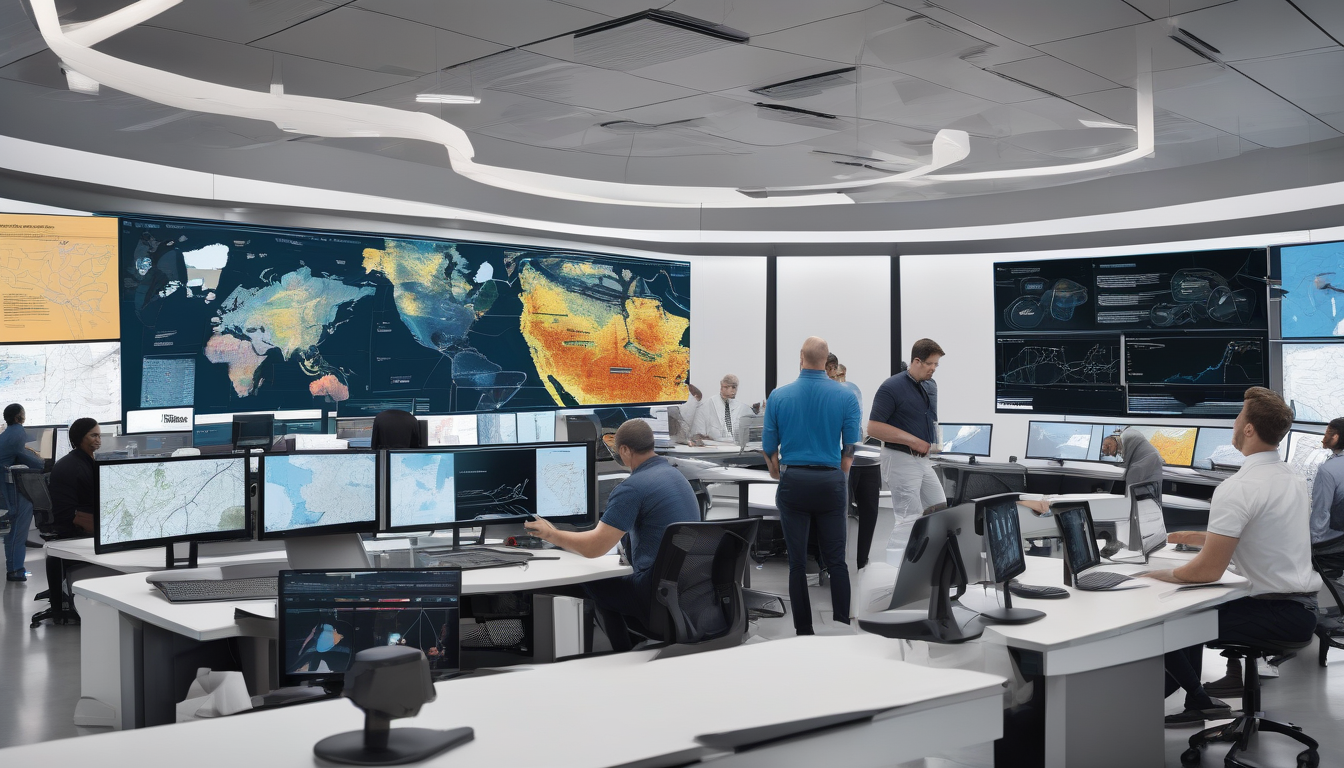
AI for Disaster Response and Management
In our unpredictable world, disasters can strike at any moment, leaving chaos in their wake. Imagine a hurricane barreling towards a populated area or an earthquake shaking the ground beneath us. In such critical times, artificial intelligence emerges as a powerful ally, transforming how we respond to emergencies. By leveraging advanced algorithms and vast data sets, AI can predict disasters, coordinate relief efforts, and analyze real-time data to enhance safety and efficiency.
One of the most impactful applications of AI in disaster management is its ability to predict events. For instance, machine learning models can analyze weather patterns, seismic activity, and historical data to forecast potential disasters. This predictive capability allows authorities to issue timely warnings, giving communities precious time to evacuate or prepare. In fact, studies have shown that early warning systems powered by AI can significantly reduce casualties and economic losses.
Once a disaster strikes, the real challenge begins. Here, AI shines by coordinating relief efforts. Imagine a scenario where various organizations—government agencies, NGOs, and volunteers—are racing against time to provide aid. AI can streamline communication and resource allocation by analyzing data from multiple sources. For example, AI can determine where the most help is needed by evaluating social media posts, satellite imagery, and reports from on-ground personnel.
Moreover, AI’s ability to analyze data in real-time is crucial for effective disaster response. By processing information from various sensors, drones, and other technologies, AI can create detailed maps of affected areas, identify hazards, and track the movement of people and resources. This data-driven approach ensures that aid reaches those who need it most, efficiently and effectively.
However, it’s essential to recognize that AI is not a silver bullet. While it offers remarkable solutions, the success of AI in disaster response hinges on collaboration between technology and human expertise. As we move forward, integrating AI into disaster management systems will require ongoing training, ethical considerations, and a commitment to transparency.
In conclusion, as we navigate the complexities of disaster response, AI stands as a beacon of hope, promising to enhance our capabilities and save lives. By embracing this technology, we can turn the tide against disasters, making our world a safer place for everyone.
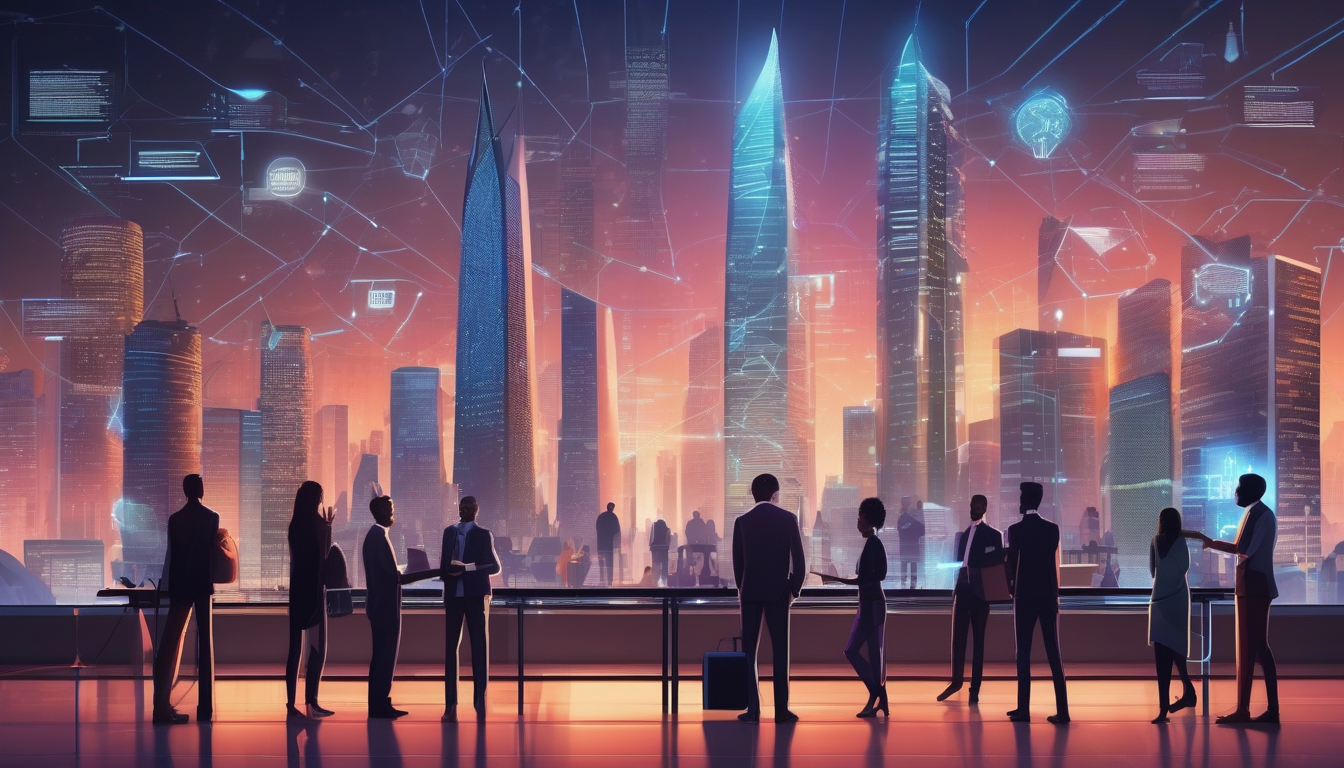
Ethical Considerations of AI in Problem-Solving
As we dive deeper into the realm of artificial intelligence, we must pause and reflect on the ethical considerations that come with this powerful tool. While AI has the potential to revolutionize how we tackle the world’s most pressing issues, it also presents a host of challenges that we cannot ignore. For instance, how do we ensure that AI systems are free from bias? Imagine a world where decisions affecting people’s lives are made by algorithms that have been trained on skewed data—this could lead to unfair treatment and exacerbate existing inequalities.
Moreover, accountability becomes a significant concern. When an AI system makes a mistake, who is responsible? Is it the developers, the users, or the AI itself? This question is not just theoretical; it has real-world implications. For example, if an AI-driven healthcare system misdiagnoses a patient, the fallout can be devastating. We must establish clear guidelines and frameworks to ensure that accountability is maintained at all levels.
Another pressing issue is security. As AI systems become more integrated into our daily lives, they also become more attractive targets for malicious actors. A breach could lead to sensitive data being compromised or manipulated. Therefore, we need robust security measures to protect against such threats. It’s crucial to foster a culture of transparency in AI development, where stakeholders are informed about how these systems operate and the data they use.
In addition, the deployment of AI raises questions about the impact on employment. While AI can streamline processes and enhance productivity, it could also displace workers in various sectors. This brings us to the ethical responsibility of ensuring that the transition to an AI-driven economy is inclusive and equitable. We should actively seek ways to retrain and upskill the workforce to adapt to these changes.
In summary, while AI holds immense promise for solving global challenges, we must tread carefully. The ethical implications are profound and multifaceted, requiring ongoing dialogue and collaboration among technologists, ethicists, policymakers, and the public. Only by addressing these concerns can we harness the full potential of AI responsibly and effectively.

Limitations of AI in Solving Global Challenges
While the potential of artificial intelligence (AI) in addressing global challenges is undeniably exciting, it’s important to recognize that AI is not a magic wand that can solve all our problems. In fact, there are several significant limitations that can hinder its effectiveness. For starters, AI systems are only as good as the data they are trained on. If the data is biased, incomplete, or of poor quality, the outcomes can be misleading or even harmful. Imagine trying to navigate a city with an outdated map; you’d likely end up lost or in trouble. Similarly, biased AI can lead to decisions that exacerbate existing inequalities rather than alleviate them.
Another critical limitation is the issue of accountability. When AI systems make decisions, it can be challenging to pinpoint who is responsible for the outcome. Is it the developers, the data scientists, or the organizations that deploy these systems? This lack of clarity raises ethical questions about transparency and responsibility. For instance, if an AI-driven system makes a flawed decision that affects people’s lives, who should be held accountable? The complexity of these systems often makes it difficult to answer such questions.
Moreover, AI technologies can be incredibly resource-intensive. Developing and maintaining AI systems often requires significant financial investment, advanced infrastructure, and specialized talent. Not every country or community has the means to invest in such resources, which can lead to a widening gap between those who can leverage AI and those who cannot. This disparity can perpetuate cycles of poverty and inequality, making it essential to consider how AI can be made accessible to all.
Finally, there’s the challenge of security. As AI systems become more integrated into critical infrastructure, the potential for cyber threats increases. A malicious actor could exploit vulnerabilities in these systems, leading to disastrous consequences. For example, if an AI system controlling a power grid were compromised, it could result in widespread outages and chaos.
In conclusion, while AI holds tremendous promise in tackling global challenges, we must approach its deployment with caution. Addressing these limitations is crucial for ensuring that AI can be a force for good rather than a source of new problems. By acknowledging and working on these challenges, we can harness the true potential of AI to create a better world.
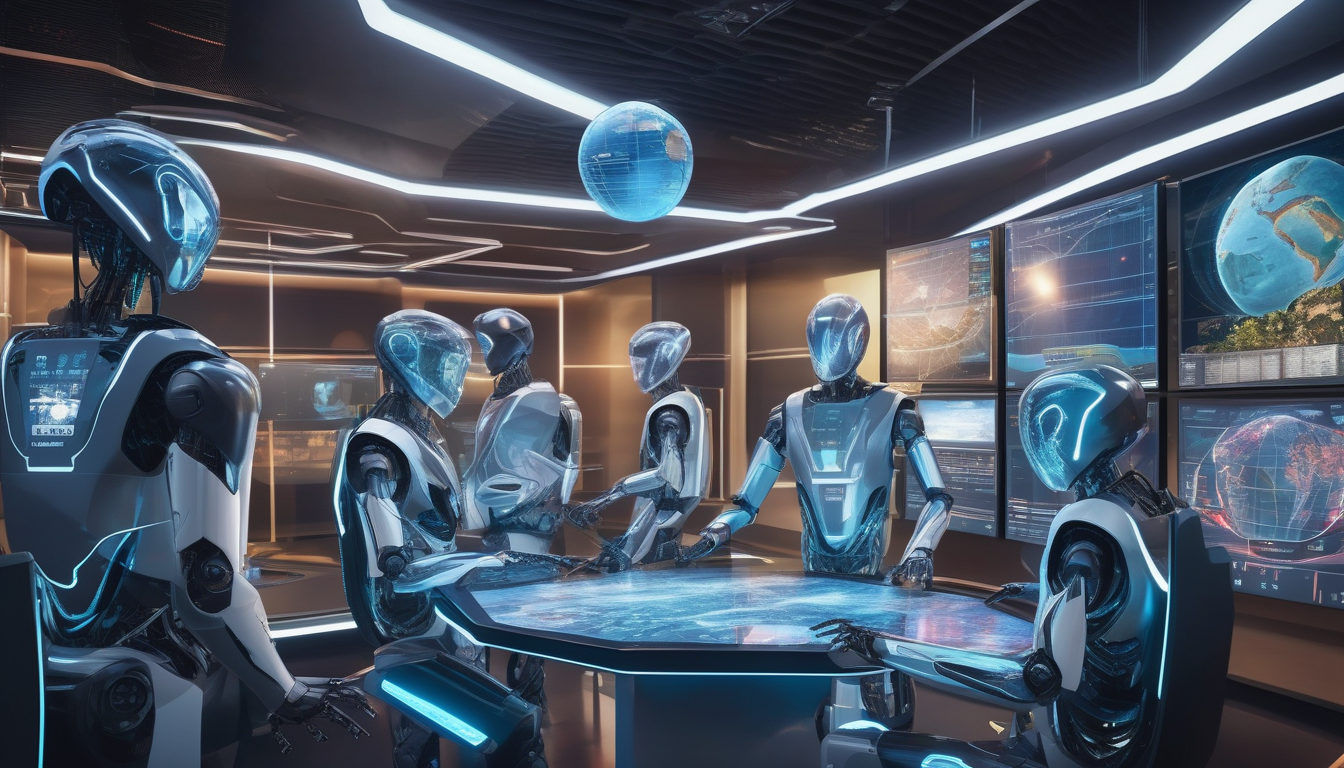
The Future of AI in Global Problem-Solving
As we gaze into the crystal ball of technology, it becomes increasingly clear that artificial intelligence is not just a fleeting trend; it’s a transformative force poised to reshape our world. Imagine a future where AI works hand-in-hand with humans to tackle some of the most daunting challenges we face. From climate change to healthcare delivery, the potential applications of AI are as vast as they are exciting.
One of the most promising aspects of AI is its ability to analyze massive datasets at lightning speed. This capability allows for more accurate predictions and solutions tailored to specific issues. For instance, in the realm of environmental sustainability, AI can optimize energy usage in real-time, reducing waste and lowering carbon footprints. Can you picture a world where our cities run on smart grids that adapt to our energy needs? It’s not just a dream; it’s a tangible possibility.
Moreover, the future of AI in healthcare is equally thrilling. With advancements in machine learning, we can expect AI to enhance diagnostics, predict patient outcomes, and even assist in complex surgeries. What if your doctor had an AI partner that could analyze your medical history and suggest personalized treatment plans? This integration of AI could lead to a healthcare revolution, making treatments more efficient and accessible than ever.
In terms of poverty alleviation, innovative AI initiatives are already underway, focusing on economic opportunities and educational access. For example, AI-driven platforms can connect individuals with job training programs, helping them acquire the skills needed for today’s job market.
- Imagine a world where everyone has access to the resources they need to succeed.
This is the kind of future AI can help create.
However, as we look ahead, it’s crucial to remember that with great power comes great responsibility. The ethical implications of AI deployment must be addressed to ensure that these technologies are used for the greater good. Issues like bias and accountability need to be at the forefront of discussions as we navigate this new landscape. Are we ready to embrace AI’s potential while also safeguarding our values? Only time will tell.
In conclusion, the future of AI in global problem-solving is not just about technology; it’s about collaboration—between humans and machines, between sectors, and across borders. As we harness this powerful tool, we must remain vigilant and proactive in shaping a future that benefits all of humanity.
Frequently Asked Questions
- Can AI really help in fighting climate change?
Absolutely! AI can optimize energy use, enhance climate modeling, and manage resources more efficiently. Think of it as having a super-smart assistant that helps us make better decisions for the planet.
- How is AI changing healthcare?
AI is revolutionizing healthcare by improving diagnostics and personalizing treatment plans. It’s like having a personal health coach that knows your medical history and can suggest the best path for your health.
- Can AI help reduce poverty?
Yes, it can! AI enhances economic opportunities, improves access to education, and optimizes resource distribution. Imagine AI as a bridge that connects people to better job prospects and educational resources.
- How does AI assist in disaster response?
During crises, AI can predict disasters, coordinate relief efforts, and analyze vast amounts of data. It’s like having a crystal ball that helps us prepare and respond more effectively to emergencies.
- What are the ethical concerns surrounding AI?
Ethical issues include bias, accountability, and security. It’s crucial to ensure that AI is used responsibly and fairly, much like how we must navigate the complexities of human relationships with care.
- Are there limitations to what AI can do?
Definitely! While AI has immense potential, it’s not a cure-all. There are challenges we need to tackle, like ensuring data quality and addressing societal impacts, before we can fully harness its power.
- What does the future hold for AI in solving global issues?
The future looks promising! With advancements in technology and collaboration between AI and human creativity, we could see innovative solutions to some of the world’s toughest challenges. It’s like a partnership where both sides bring their strengths to the table.


